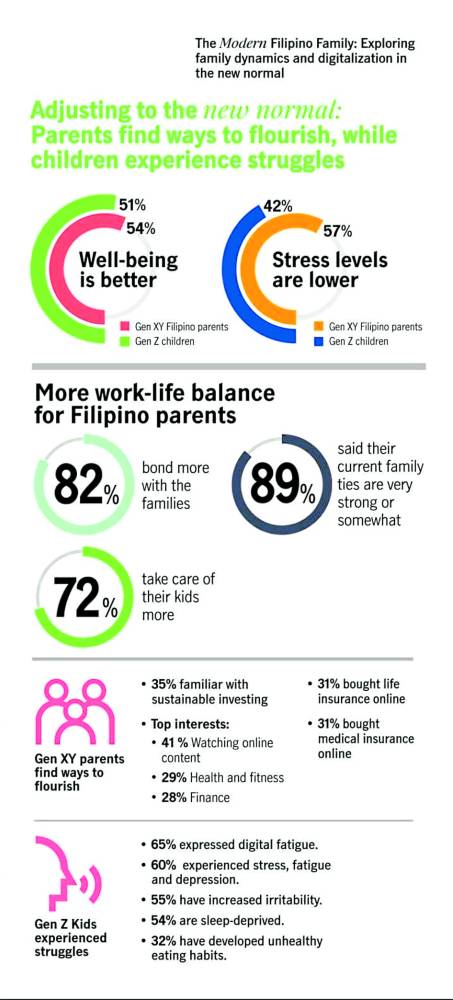Pandemic takes heavy toll on zoomers
The year was 2020. It’s been barely three months since the Philippine government announced that Metro Manila would be placed under strict lockdown because of a new and deadly sickness going around the country and across the globe.
A 19-year-old Maica Aquinde woke up two hours before noon in their modest home in Quezon City after staying up till the wee hours of the night. Her petite hands searched and stumbled for the i-Phone she had left by the bedside, her mind still half-asleep.
The first thing that entered her mind was to check her Facebook feed. The social networking site was a compulsion that was hard to resist, since this was her only window to the outside world.
“You want to go out and unwind, but you are stuck in an environment that stresses you out,” she recalls those early days of the pandemic.
Today she is feeling a little better, but still feels isolated from friends sometimes and has random bouts of anxiety similar to the days when the pandemic and the lockdown were at their height.
She describes an increased occurrence of negative emotions such as stress, fatigue and depression, as well as a decline in physical activities.
Gen Z’s woes
Aquinde’s experiences are common among those from the Generation Z cohort, people born from 1997 to 2012, who are now in the age range of 9 to 24 years old, who are having a tougher time recovering from the ills triggered by the outbreak of the COVID-19 virus.
A study done recently by the Philippine unit of global financial services provider Manulife Financial Corp. and InSites Consulting found that this generation, colloquially referred to as “zoomers,” have higher stress levels in adjusting to the new normal compared with Generation X and Ys.
Gen X refers to people born from 1965 to 1980, while Generation Y, or the millennials, refer to those born during the 1980s to the mid-1990s.
The Manulife study – which surveyed 500 Filipinos, aged 18 to 55 earlier in May – found that only 42 percent of Gen Zs say their stress levels are lower today compared with 57 percent of Gen X and Y saying the same.
Based on the study, 51 percent of the “zoomers” surveyed say their well-being is better today while 54 percent from the other two demographics say the same.
The good and the bad
Raphael Inocencio, a licensed psychologist and also the managing director at mental health firm Better Steps Psychology Inc., says that the social and physical isolation caused by the most recent health crisis that shocked the world has both good and bad consequences.
“There were many opportunities that (people) grabbed, in the sense that families could connect and relate with each other, create new experiences together or reestablish experiences that they have forgotten when things were different prepandemic,” he says.
In contrast, he says not all people have the luxury of living in larger spaces, indicating that many have suffered from cabin fever or a diminished sense of space and privacy.
“That physical limitation [of] being in cramped spaces led to the feeling of having cramped lives also. The lack of boundaries, both physically, psychologically, emotionally led to violation of expectations that could lead to personal conflicts within the family,” he says.
The younger, the more stressed
Manulife Philippines chief marketing officer Melissa Henson offers an explanation to why millennials are having an easier time in recovering from the travails caused by the health crisis.
“I think part of it is their difference in age, which then translates to a difference in life stage,” she explains, when sought for comment.
“(Millennials) are actually already in working age, so, they are more independent in general and financially as well,” she adds, citing that people from this generation, in general, also have the option to change jobs compared with Gen Zs, many of whom are still in school.
Henson explains further that Gen Zs are also in a “more structured” environment and lifestyle, as they are still dependent on their parents.
“So, maybe there is still not as much leeway to make those big life decisions as we have been able to see in our millennial responders,” adds the Manulife Philippines executive.
Inocencio concurs with Henson’s explanation, reiterating that the difference in age and life period does make a difference in handling stress.
“(Millennials) are actually young adults or adults. A lot of us are working already and pushing 40,” he says, admitting that he belongs to the same generation.
“I think that’s what allowed us to take control of the situation,” he adds.
According to the same study, the two older generations are finding ways to flourish under the new normal, with 35 percent of the surveyed demographics saying they have become familiar with sustainable investing.
The study also took note of the top interests of Gen X and millennials, with 41 percent getting themselves preoccupied with watching online content, 29 percent tuning in to health and fitness apps, and 28 percent getting themselves familiar with topics involving finance.
Changing behaviors
The results of the study also point to the current consumer behavior online, suggesting that most people have shifted to digital platforms when it comes to a wide range of interests.
According to the study, 95 percent of people go online for leisure and entertainment, while 92 percent communicate with family members and friends through social networks, video calls, instant messaging and voice calls.
Meanwhile, 90 percent also use e-commerce apps, while 82 percent use finance apps, 64 percent access health and fitness apps, and 45 percent use remote work apps for hybrid work setups.
“We have all shifted our purchasing behaviors largely online,” says Henson.
